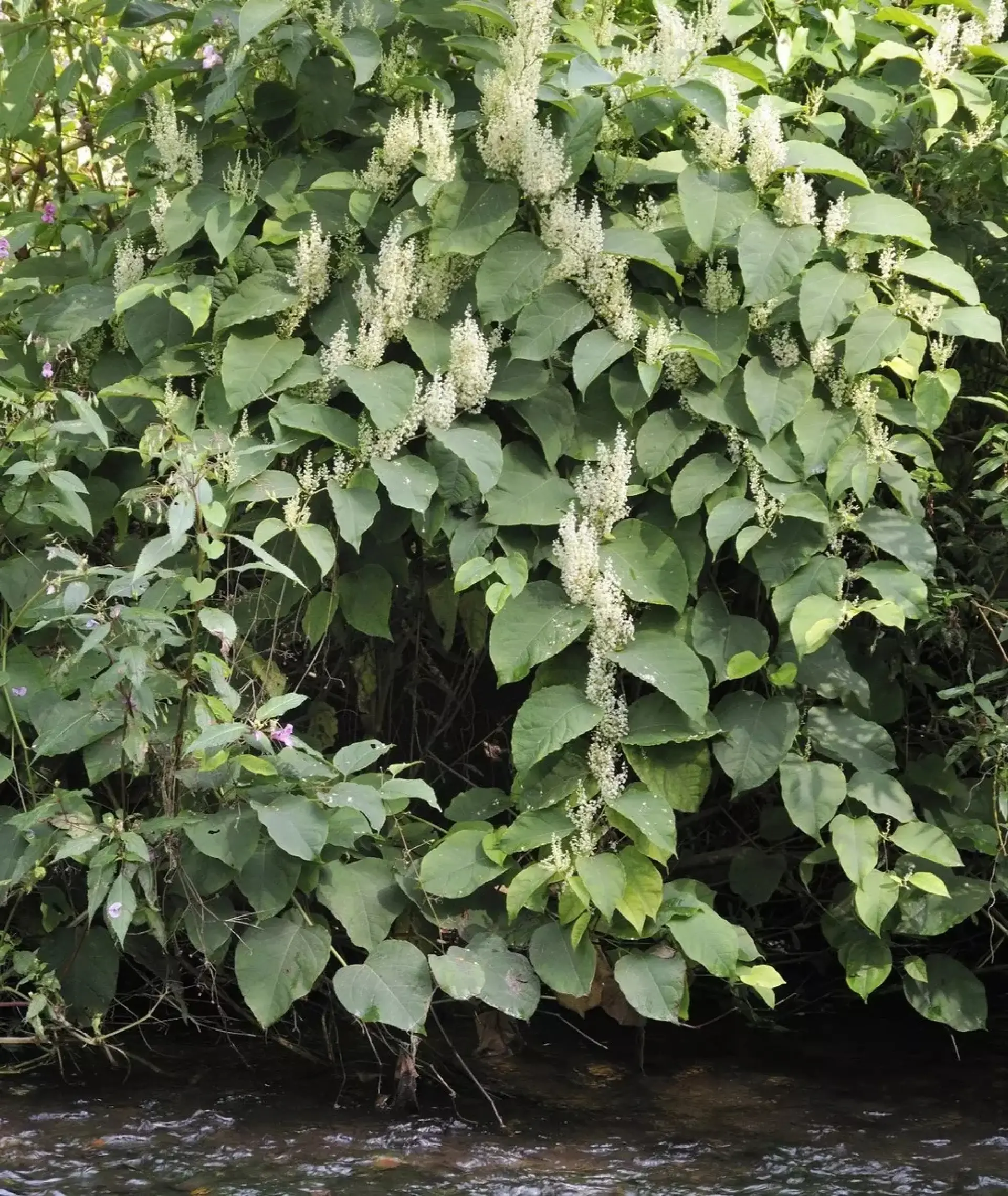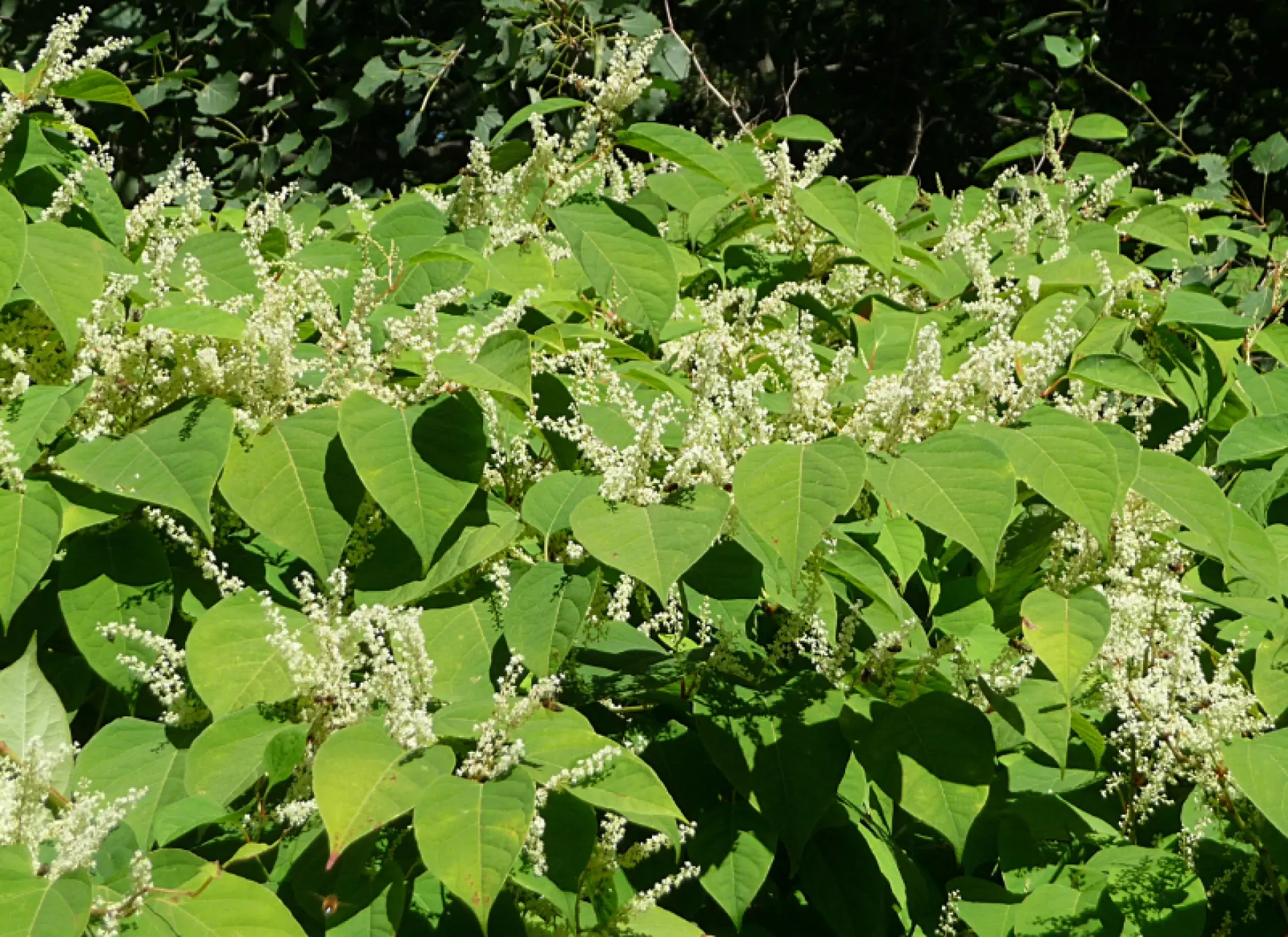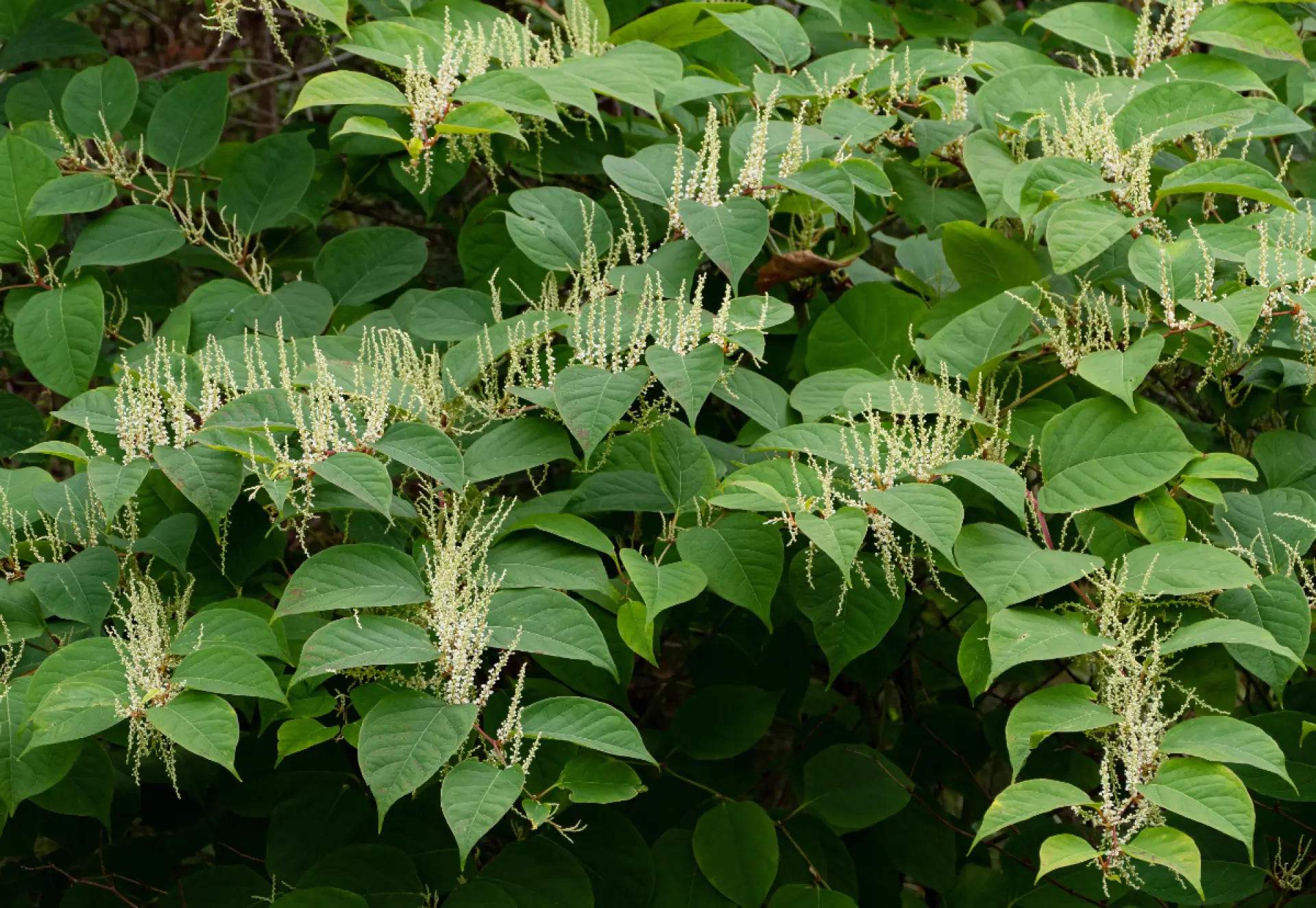What is Japanese Knotweed?
Japanese knotweed is a tall plant that was first brought to the UK from Japan. It was once used in gardens because of its unusual looks. The plant has thin, bamboo-like stems and heart-shaped leaves. In the summer, it produces small white or cream flowers.
One of the reasons Japanese knotweed is so troublesome is that it spreads using underground roots called rhizomes. These roots can grow very deep and far, allowing the plant to cover large areas quickly. This means that even a small piece of the plant can start a new colony if it is moved.
Why is Japanese Knotweed a Problem?
There are several reasons why Japanese knotweed is a problem. Firstly, the plant can grow through cracks in walls, paths, and even building foundations. This can lead to expensive repairs for property owners.
Secondly, Japanese knotweed spreads quickly and takes over gardens and wild areas, leaving little room for native plants to grow.
This loss of natural vegetation can upset local wildlife and the natural balance of the area. The plant's fast growth makes it very difficult to control or remove once it has become established.

Is it Worth Buying a House with Japanese Knotweed?
Many people worry about buying a house that has Japanese knotweed on the property as the presence of this plant can lower the value of a home. Lenders and mortgage companies are often reluctant to provide loans for properties with Japanese knotweed because of the risk of damage.
If you are considering buying a house with this plant, it is very important to have a professional survey done. The survey will tell you how severe the problem is and how much it might cost to remove the plant. Often, the cost of removal and potential future repairs means that buying a house with Japanese knotweed is not the best idea.
What Should I Do if I Find Japanese Knotweed in My Garden?
If you discover Japanese knotweed in your garden, it is best not to try to remove it yourself. The plant is very resilient and can spread even more if it is disturbed.
Instead, you should contact a professional who is experienced in dealing with Japanese knotweed. These experts can assess the situation and advise you on the best course of action.
In many cases, you may also need to inform your local council, as there are specific rules about managing Japanese knotweed.
Acting quickly can help to prevent the plant from spreading to other areas of your garden or neighbouring properties, reducing the chance of it causing any damage to your property or neighbouring properties.

Removing Japanese Knotweed
Removing Japanese knotweed is not a simple task. It requires careful planning and the help of experts. One common method is to use special herbicides that are designed to kill the plant. Sometimes, the process also involves digging up and removing the soil where the knotweed has grown.
This is important because the underground roots can extend far beyond the visible plant. The work must be carried out with great care to avoid spreading the plant even further. It is advised to hire professionals to ensure the removal is done safely and effectively. The removal process can take months or even years, and the area must be monitored afterwards to ensure that the plant does not return.
Are you looking for professional home buyers surveyors across Kent, Sussex and Surrey? If you have any questions please get in touch with us today!





